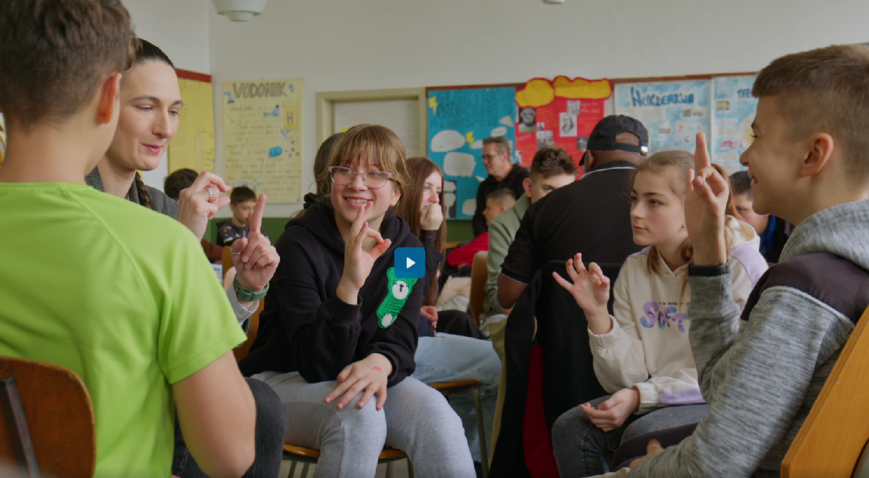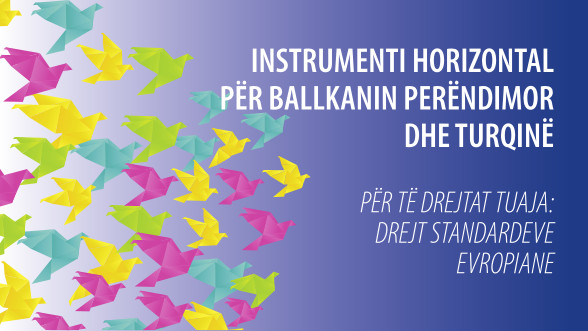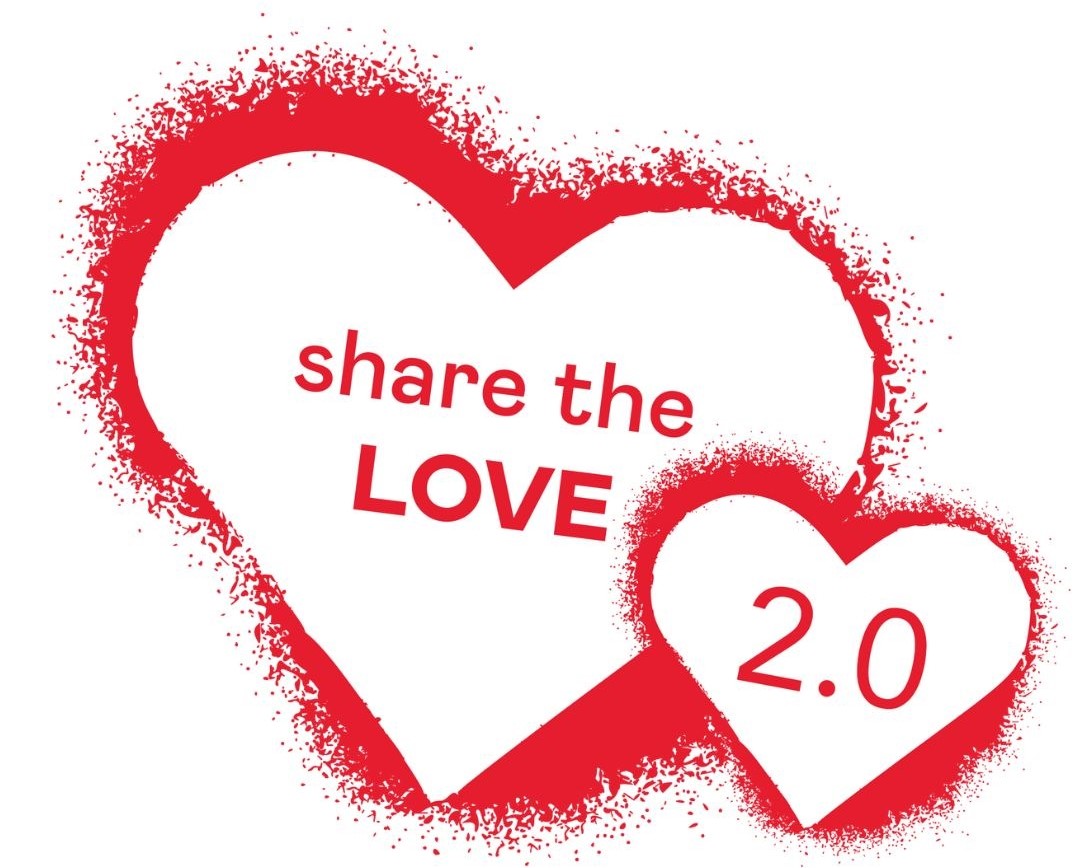The “Living Library” is no ordinary bookshelf. Instead of printed pages, students meet real people- “Books” who share their life experiences, challenge stereotypes, and invite dialogue.
In classrooms across Bosnia and Herzegovina, five activists representing different minority groups became these living books, meeting 437 students from 16 communities, answering their questions and opening conversations that might not happen otherwise.
For Vladimir Andrle, the motivation to take part in the Living Library comes from a deep wish to see change. “The motive for being at these living libraries comes precisely from that, because I have a desire for this society to change, for the paradigm of the society to change, for divisions to be reduced,” he said.
He recalls one boy asking when he “came out as a Jew.” For Vladimir, the moment was revealing: “They basically haven't had the opportunity to meet a Jew and don't perceive Jews as a people that exists in Bosnia and Herzegovina. I don't mean that in a bad way, but they simply haven't had the opportunity to meet them.”
The experience of Amra Ahmetović, who spoke to students as a Roma woman, also highlighted the way stereotypes shape perceptions. “That conversation always ended in a way like, ‘well, you don't look like a Roma woman, I would never say that you are a Roma woman, you don't talk like a Roma woman,’” she explained. For her, breaking down those assumptions, face to face, was exactly the point of being a living book.
From another shelf in this human library, Alma Mujanović shared her story as a person advocating for the rights of people with disabilities. “This project is extremely important because it raises awareness about diversity, about the importance of sign language, about the importance of the way of communication, towards people with hearing impairment or in general towards people with disabilities,” she said, underscoring that communication itself can be a bridge to inclusion.
For Đulisa Otuzbir, a Young European Ambassador, the Living Library was about shaping perspectives at the right moment in life. “I think it is important to raise awareness among young people at this age because it is when they form their personalities and step into the world. It is very important to me that if we have changed the opinion of even one single young person today, then this workshop or activity has been successful.”
Together, these living books turned pages of empathy with every conversation. By sharing their voices openly and directly, they helped students see beyond stereotypes and recognise the diversity that is already part of their communities.
The initiative is part of the broader European Union and Council of Europe programme “Horizontal Facility for the Western Balkans and Türkiye”, through the action “Towards an equal, inclusive and tolerant Bosnia and Herzegovina” and the Council of Europe project “Combatting discrimination, hatred and racism in Bosnia and Herzegovina.”




